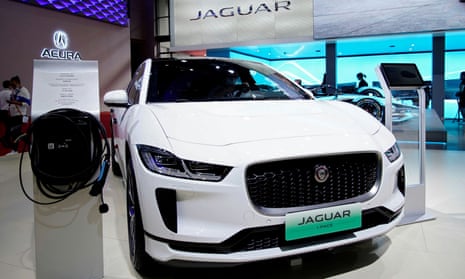
JLR owner to pick UK for electric car battery factory, say reports
Tata Group said to preparing to sign deal to build plant in Somerset that could create up to 9,000 jobs
Somerset is poised to become the location for a multibillion pound electric car battery plant that could create thousands of jobs, according to reports.
Tata Group, which owns the carmaker Jaguar Land Rover, is preparing to sign a deal that would mean the new factory would be based in the UK rather than Spain, the BBC reported.
The deal would mark an important milestone for Britain in terms of innovation and investment in the automotive sector.
According to the BBC report, the chair of Tata will meet Rishi Sunak in the middle of next week.
It added that sources familiar with the matter said a deal has not yet been signed but engagement had taken a step forward, with negotiations moving on to the drafting of an agreement.
The chancellor, Jeremy Hunt, last week hinted the deal could be imminent, saying: “All I would say is watch this space because we are very focused on making sure the UK gets that EV [electric vehicle] manufacturing capacity.”
A new Bridgwater-based plant could create up to 9,000 jobs.
Tata, an Indian conglomerate, was believed to be considering another site in Spain, which unlike the UK, is a member of the EU. A spokesperson for the company declined to comment on the reports.
Stellantis, one of the world’s largest carmakers, has warned it will be unable to keep its commitment to make electric cars in the UK and may have to close factories without changes to the Brexit deal.
Last week, the Vauxhall, Citroën and Peugeot owner told a Commons inquiry into the supply of batteries for electric vehicle manufacture that its UK investments hung in the balance because of the terms of the trade deal.
The company stressed the need to “reinforce the competitiveness of the UK by establishing battery production in the UK”.
after newsletter promotion
Earlier this year, Britishvolt, a startup that had promised to build a massive battery factory in the north-east of England, went out of business.
The company had been seen as one of the UK’s biggest hopes in the sector but had no previous experience of producing batteries and could not secure the funds it needed.